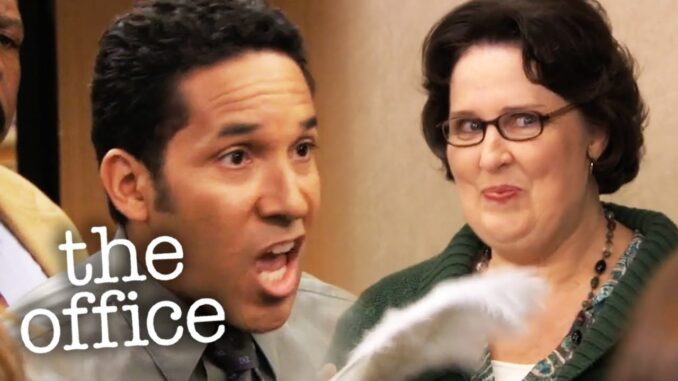
“`html
The fluorescent lights of Dunder Mifflin Scranton buzz overhead, casting a sterile glow on what is ostensibly a lively murder mystery party. Tonight, the branch is transformed into “Murder in Savannah,” and Michael Scott, as always, is fully committed to the role… perhaps a little *too* committed. The air is thick with the scent of cheap party decorations and palpable awkwardness. But beneath the surface of strained laughter and poorly executed Southern accents, a disquieting question begins to simmer: Is Michael Scott actually acting, or is something darker at play?
The Unsettling Reality of Scranton Strangler 2.0?
Michael’s enthusiasm for themed parties is legendary, but his dedication to method acting is often terrifying. This murder mystery is no different. However, there are a few specific incidents during the party that cause concern about his actual psychological state. Consider these observations:
- The Obsessive Detail: Michael insists on using real props whenever possible. This time, that includes a replica (or so he claims) of the murder weapon, a rather menacing letter opener. He brandishes it with unsettling frequency, his eyes gleaming with an unreadable intensity.
- The “Forgotten” Lines: Michael frequently forgets his lines, but instead of improvising humorously, he veers into unsettling monologues about power, betrayal, and… disposal. These moments, while initially dismissed as Michael being Michael, feel distinctly *off*.
- The Singular Focus on “Killing”: While everyone else is focused on solving the mystery, Michael seems singularly fixated on the act of murder itself. He repeatedly asks morbid questions about motive and opportunity, dwelling on the grislier details with an unnerving fascination.
Adding to the unease is Michael’s general state of mind. He’s been particularly volatile lately, prone to fits of rage and moments of profound loneliness. His desperation for connection is palpable, yet he pushes people away with his abrasive behavior. Is this just Michael being Michael, or is it a manifestation of something deeper and more disturbing?
Pam Beesly, ever the empathetic observer, is visibly concerned. She tries to subtly redirect Michael’s focus, but her efforts are largely futile. Even Dwight Schrute, usually an unwavering supporter, seems slightly unnerved by Michael’s intensity. The other employees, trapped between amusement and apprehension, attempt to navigate the evening with forced cheerfulness.
The brilliance of *The Office* lies in its ability to blur the lines between comedy and cringe. The ambiguity of Michael’s behavior in this hypothetical scenario perfectly embodies that tension. Is he simply a misguided and emotionally stunted man-child, or is there a genuine darkness lurking beneath the surface? The answer, thankfully, is probably the former. But the nagging doubt remains, a testament to Steve Carell’s masterful portrayal and the unsettling truth that even the most ostensibly harmless individuals can possess a capacity for the unexpected. Ultimately, it makes this “Murder in Savannah” a party that everyone would likely prefer to forget, and for all the right, or wrong, reasons.
“`